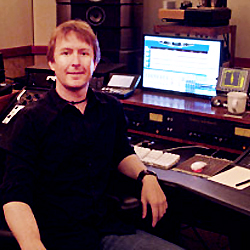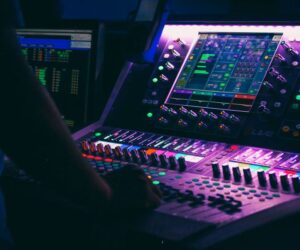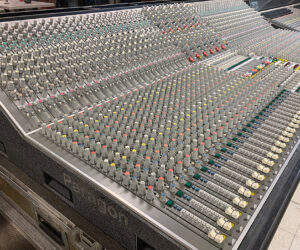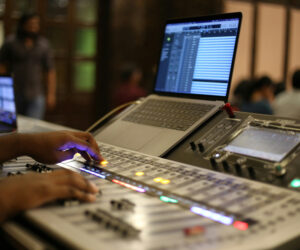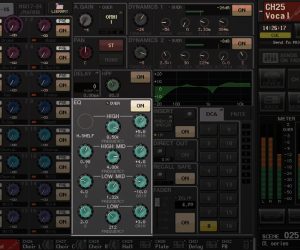
The mastering engineer is the last step of the artistic phase, and the first step of the manufacturing phase.
It’s the final opportunity to listen, polish, and make a change in the sonic presentation. It’s also the first step of the manufacturing phase, because it prepares the master in the way that best suits the needs of the manufacturer.
The goal is to listen to the broad picture; the actual content is immaterial. The mastering engineer is paying attention to EQ presentation, to level presentation, to dynamics presentation. It’s taking a collection of songs, and creating a flowing body of work.
A Bit of History
Mastering has changed greatly since the late 1950s, when mass-produced music became the norm. At the time, record labels owned studios, and the labels employed the engineers.
Engineers started their careers as apprentices, and the first stop on their path was to apprentice with the mastering engineer. This was to develop and hone their listening skills. The mastering engineer was responsible for transferring the final tapes from the mix/balance engineer, and ensuring that the transfer to lacquer (the master at the time) was as accurate as possible.
The whole goal was to duplicate the tape sound on the disc. In the process of apprenticeship, the new engineer listened to hundreds and hundreds of transfers, and learned the subtleties of this art from a seasoned professional. As the new engineer gained skills, he or she typically moved to training with the mix engineer, and recording engineer.
As the studio/label relationship broke down over the years, engineers became independent, and started working in different studios. The challenge here was that each studio had a different mix environment. The engineers were then tasked to polish the results from a less familiar environment, using the tools they had at their disposal: EQ, dynamics, processing, and levels.
This is the situation we are still in today, in which the role of the mastering engineer has expanded to become the final check for both the technical and artistic aspects of a project.
Preparing Your Mix For Mastering
1) Be Prepared. When you show up at the session, it’s essential that you are prepared. You should clearly label which are the final mixes you’d like the engineer to use. You should have all the details of the file finalized such as song titles, sequencing, and metadata such as ISRC codes and CD text.
It’s also important to have documentation of any known problems with the files as well. Accurately note the existence and location of glitches, digital errors, distortion, bad edits, and level problems. This will save a lot of time and money during the mastering stage.
Additionally, you should know who the manufacturer will be, and what their requirements are for type of master and method of delivery. Make sure the songs have been accurately timed out, so that they will comfortably fit the size of the intended format(s). If you are supplying the pre-master mixes on an analog format (like tape), it is very important to include full reference tones and documentation of the specifics. This assures that the material will be played back at proper levels and bias.

